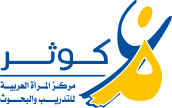Training to empower: designing a new skills set for women-led social innovation in agri-food
Abstract
This publication has been produced by Cawtar with the financial support with the European Union under the ENI CBC Mediterranean Sea Basin Programme. in the frame of project “Social Innovation in the Agri-food sector for Women Empowerment in the Mediterranean Sea basin” The aim of this document is to homogeneously present the research activities and the development of the new training models carried out by all research units. To do so, the report is organized as follows:
The first chapter illustrates the research framework and methodologies employed, and describes the research guidelines defined by the coordinating unit, University of Rome Tor Vergata.
Then, four country specific chapters (2-5) report the activities carried out in each region: the first one presents the work performed by CESIE team (Sicily-Italy), the second one by ASALA team (Palestine), the third one by JOVESÓLIDES team (Valencia-Spain) and the last one by CAWTAR team (Tunisia). The first section of each partners’ chapter provides an overview of the team and the local context where the project will be implemented, then the aim is to resume relevant information achieved through the desk research, related to the local context features and the existing training programs concerning the agri-food in the specific region. Then, a section dedicated to the field research presents a list of the stakeholders engaged, underlying what is their expected contribution to the project, in a direct or indirect way, also in terms of post-training employability; in the same section the value chains and products selected by each unit are explained. Section 3 of each chapter is dedicated to the local training needs, seen as skills and competences required by the job market and the entrepreneurial context, identifying a gap that will be filled through the provision of the training course. The last section introduces the training model realized on the basis of local training needs retraced, divided in cross-cutting and sectorial topics. The training course will be as unified as possible, even if each unit decides how to differentiate training contents, especially through the definition of two different profiles identified as agent for creation and agent for transition.
Chapter 6 concludes, providing an overview of the training curricula developed by each partner.
أضيفت بواسطة
CAWTAR
| 2023-09-15 12:52:17
نوع الوثيقة
الدراسات
المصادر
(مركز المرأة العربية للتدريب و البحوث (كوثر
الاتحاد الأوروبي
كلمات المفاتيح :
Women Empowerment//entrepreneurship//Agri-food sector//economic participation//Social Innovation//Digital Empowerment//Sustainable Development//reduce poverty//self-employment//gender//equality//training needs study

